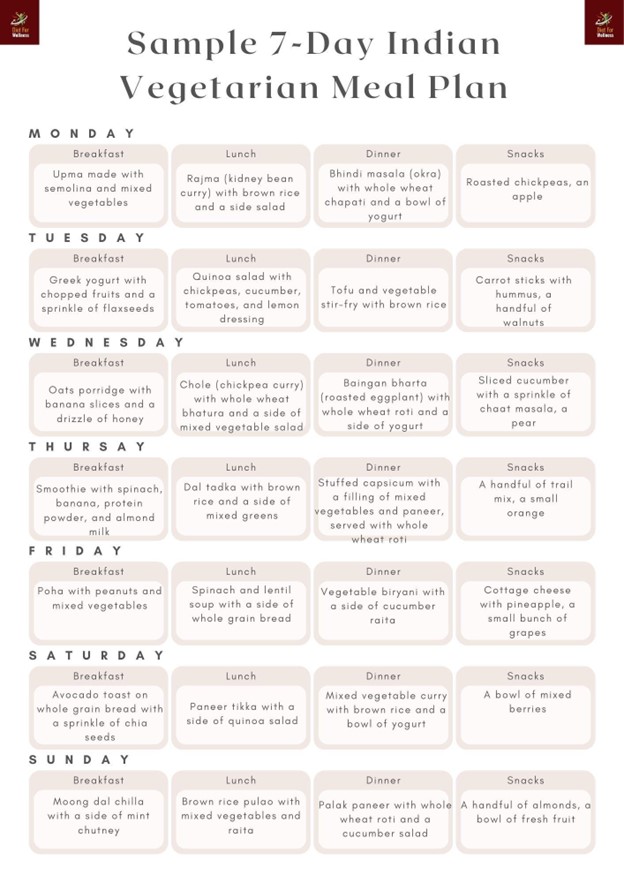Lose weight in 30 days with the right diet for your body

While exercise is important, a healthy diet plays a major role in weight loss (around 70%). The remaining 30% comes from a combination of exercise and other lifestyle changes.
Even with a busy schedule, there are ways to stay fit! Here are some simple home exercises you can try, but remember, a well-rounded approach is key.
When it comes to losing weight, quick fixes and fad diets often seem tempting. However, the key to sustainable weight loss lies in understanding your body’s unique needs and fueling it with the right nutrients. By focusing on a balanced diet tailored to your specific requirements, you can achieve noticeable results in just 30 days.
Guide for your journey to a healthier you
- Understand Your Body Type
Before diving into a diet plan, it’s crucial to understand your body type. Generally, body types can be categorized into three main types:
- Ectomorph- Lean and long, with difficulty building muscle.
- Mesomorph- Well-built and muscular, with high metabolism rate and responsive muscle cells.
- Endomorph- Higher body fat percentage, often with a pear-shaped body and a tendency to store fat.
Each body type responds differently to various types of diets and exercise. Knowing your body type can help tailor your diet plan for optimal results.
- Calculate Your Caloric Needs
Weight loss fundamentally comes down to a calorie deficit, meaning you consume fewer calories than you burn. Use an online calculator to determine your Basal Metabolic Rate (BMR), which is the number of calories your body needs at rest. Then, factor in your activity level to find your Total Daily Energy Expenditure (TDEE). Aim to create a calorie deficit of 500-750 calories per day to lose about 1-1.5 kilos per week.
- Choose the Right Nutrients
Focus on a diet rich in whole, unprocessed foods.
Include these-
- Protein- Essential for muscle repair and growth. Aim for lean sources like chicken, fish, tofu, legumes, and low-fat dairy.
- Complex Carbohydrates- Provide sustained energy. Eat whole grains, fruits and vegetables instead of refined carbs.
- Healthy Fats- Necessary for hormone function and satiety. Have olive oil, avocados, nuts, and seeds.
- Fiber- Helps with digestion and keeps you full. Add plenty of fruits, vegetables, and whole grains.
- Stay Hydrated
Water plays a crucial role in weight loss. It aids digestion, keeps you full, and helps flush out toxins. Drink a minimum of 8-10 glasses of water daily. Often our bodies confuse thirst with hunger, thus leading to unnecessary snacking habits.
- Mindful Eating
Pay attention to what you eat and how you eat. Avoid distractions like smartphones or TV during meals. Chew slowly and savor each bite. This practice not only enhances digestion but also helps recognize true hunger and fullness cues.
- Monitor Your Progress
Track your food intake, physical activity, as well as weight loss progress. You can take help of online apps or a simple journal to stay accountable and make necessary adjustments to your diet.
- Include Regular Exercise
While diet is crucial, combining it with regular exercise accelerates weight loss. Go for a mix of strength training exercises and cardio. Cardio burns calories, while strength training builds muscle, which in turn boosts your metabolism.
- Get Adequate Sleep
Sleep is often overlooked in weight loss journeys. Poor sleep can disrupt the proper production of hormones like ghrelin and leptin. These are very helpful in regulating hunger. Make sure that you get 7-9 hours of good sleep every night to support your weight loss efforts.
- Seek Professional Guidance
If you’re unsure where to start or how to tailor your diet, consider consulting a dietitian or nutritionist. They can provide personalized advice based on your body type, lifestyle, and health goals.
Here’s a simple meal plan that you can follow for starters

Losing weight in 30 days is achievable with the right diet tailored to your body’s needs. Focus on balanced, nutrient-rich foods, stay hydrated, and incorporate regular exercise.
The goal is not just to shed kilos quickly but to adopt healthier habits that you can maintain long-term. Embrace this journey as a positive lifestyle change, and celebrate each milestone along the way.
